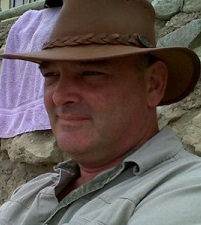[fusion_builder_container hundred_percent=”yes” overflow=”visible”][fusion_builder_row][fusion_builder_column type=”1_1″ background_position=”left top” background_color=”” border_size=”” border_color=”” border_style=”solid” spacing=”yes” background_image=”” background_repeat=”no-repeat” padding=”” margin_top=”0px” margin_bottom=”0px” class=”” id=”” animation_type=”” animation_speed=”0.3″ animation_direction=”left” hide_on_mobile=”no” center_content=”no” min_height=”none”]
Ons weet dat die rewolusionêre klimaat gedryf word deur armoede. Erger as armoede is die emosie wat armes ervaar wanneer hulle sien dat ‘n sekere minderheidsgroep onregmatig baie voordeel uit die ekonomie trek. Hierdie voorkoms van massa armoede en minderheid welvaart word omskryf as ekonomiese ongelykheid.
Wat verder tot hierdie emosie bydrae is natuurlik die wete van grootskaalse korrupsie wat hoëlui bevoordeel. In ‘n onlangse studie word hierdie teëlgrond vir ‘n rewolusionêre klimaat sterk bevestig.
Coenie Maree
Hoof van Noodplan
Inequality is greater today than at the end of the apartheid era, and the two richest people in the country are believed to possess more wealth than the poorest 50% of the population combined.
A global report on inequality, Even It Up: Time To End Extreme Inequality , does not name the richest citizens of South Africa – but, according to Forbes magazine, Johann Rupert and Nicky Oppenheimer were the top earners in 2014.
The gap between rich and poor has grown to “unprecedented levels” in the past 30 years in spite of the “remarkable” progress made towards ending poverty, says the report, released by Oxfam.
The report said it would take a South African platinum miner 93 years to earn what the average mining company CEO receives as an annual bonus.
It is predicted that 300000 more South Africans will be living in poverty five years from now if the index of inequality increases by just one point. South Africa already has one of the world’s biggest inequality gaps.
Leonard Kufeketa was one of the South Africans consulted by the compilers of the report. He said the situation had “taken a turn for the worse”.
[/fusion_builder_column][/fusion_builder_row][/fusion_builder_container]